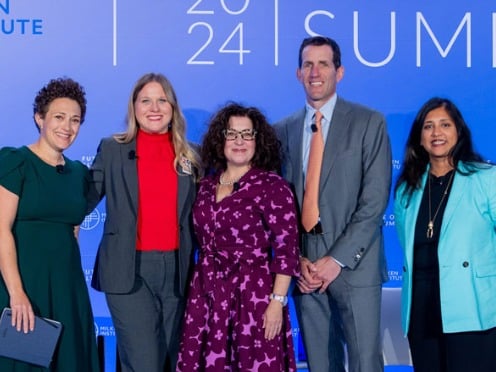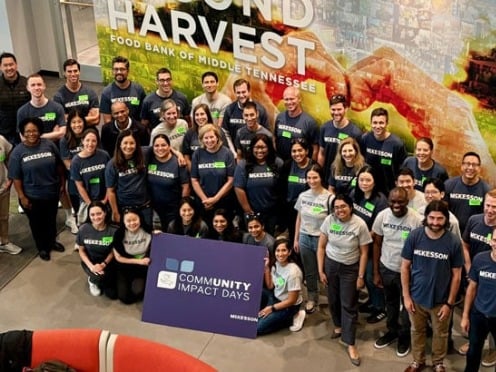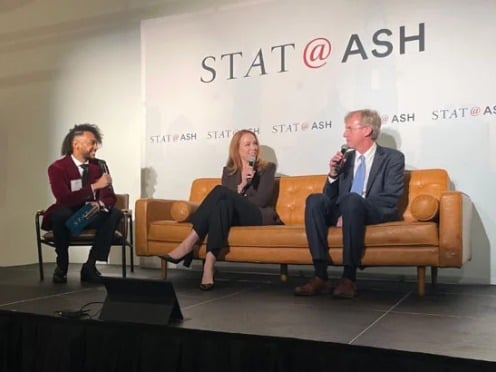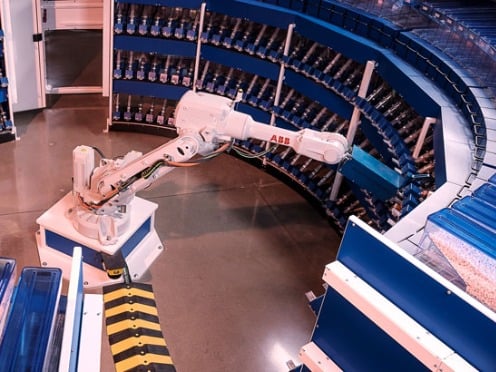
Ontada is an oncology technology and insights company committed to advancing cancer research and care by connecting life sciences partners, providers and patients.

Guided by our values, we are an impact-driven organization that improves care in every setting – one product, one partner, one patient at a time.
Through our core commitments, we are leveraging our scale for the greater good, such as serving the needs of our stakeholders, donating back to our communities, protecting our planet, working with policymakers, and more.
Every year, we publish updates to our commitments through our Impact Report.
Download Our Impact ReportOur businesses bring together leading technologies, innovative solutions and hands-on expertise to support the entire healthcare ecosystem.
We distribute pharmaceuticals and medical supplies to healthcare settings across North America, from pharmacies and hospitals to doctors’ offices and clinics.
We help to ensure the financial wellbeing of pharmacies and health systems and support a stable work environment for their employees.
We provide research, insights, technologies and other support to help address challenges in cancer and specialty care.
We provide a suite of solutions designed to address access, affordability and adherence challenges by bridging the gaps between biopharma companies, pharmacies, providers, and payers to help patients get on and stay on their medications.
We offer solutions that enable employers, payers, health-plan brokers and government agencies to provide lower-cost options for prescription medications and therapies.
We help to ensure the financial wellbeing of pharmacies and health systems and support a stable work environment for their employees.
Every year, we publish updates to our commitments through our Impact Report.
Download Our Impact ReportMilken Institute Future of Health Summit panelists address critical industry challenges and explore ways to futureproof the pharmaceutical supply chain.
Read Time
4 minutes

Photo Credit: Milken Institute
The Milken Institute Future of Health Summit is an annual forum that brings together policymakers, patient advocates, healthcare leaders and other leading public health experts to discuss critical issues shaping the industry landscape. This year’s event featured a panel on how pharmaceutical supply chain advancements are meeting the moment and beyond to support patient access to the medications and medical solutions they rely on.
Sarah Karlin-Smith, senior writer at the Pink Sheet, a leading pharmaceutical regulatory and policy publication, moderated the panel which included:
Below are key takeaways from this moderated panel discussion.
Takeaway 1: There’s a need for a more robust and resilient supply chain that keeps patients at the forefront.
To start the discussion, Raghavendran cited a USP report noting 2023 had the highest drug shortages in 10 years. Panelists identified several factors contributing to this issue, including surges in patient demand, availability of active pharmaceutical ingredients (APIs), declining drug reimbursement rates and manufacturing challenges.
In terms of solutions, panelists emphasized the need to ensure the robustness and resilience of the pharmaceutical supply chain.
“It’s really easy to start swirling around the financial flows and the product flows, and the investments and all the challenges,” Kaminsky shared. “But if you start with the patient and you think about the fact that there are patients not getting the medication they need, it becomes a lot more compelling… I think that’s the focus and the clarity mission and vision we need: we always have to keep the patients at the front.”
“We have to build in additional redundancies, additional capacity, both nationally and globally,” said Bray. “But we have to make sure patient care is at the center of that design."
Takeaway 2: Coordinated efforts are critical between the federal, state and local governments, nonprofits, the private sector and the public.
A consistent theme throughout the discussion was the crucial role of public-private partnerships in supply chain resilience, particularly for managing critical supplies and emergency response.
In addressing drug shortages, Kaminsky shared his support of measures to create a robust and competitive market, like implementing quality-based and supply preservation incentives, as well as strengthening access to APIs and fully manufactured products.
“This is a complex, multi-faceted problem,” he said. “But I do believe that there's more energy and conviction across the industry, the government, through the industry participants, that this is a problem we need to solve.”
Takeaway 3: The manufacturing and supply chain workforce is highly skilled and in high demand.
Panelists explored the essential role manufacturing and supply chain employees play each day and particularly in times of crisis. However, low unemployment and high demand for supply chain talent make it tough for employers to attract and retain skilled professionals in a competitive market.
Feinglass highlighted the critical need for a well-trained workforce in manufacturing complex products like diagnostics, pharmaceuticals, and medical devices. Based on her experience scaling up COVID-19 diagnostics production, she stressed the importance of supporting and empowering employees during crises.
Feinglass remarked, “…if you're not putting some surge capacity in both to your workforce and your manufacturing sites, then you will have a problem at a time of crisis…”.
At McKesson, Kaminsky highlighted recent investments in automation throughout our distribution center network to take care of redundant tasks so employees can focus on more complex, purposeful work. This leads to greater employee safety, satisfaction and retention.
Takeaway 4: Digital transformation of the supply chain is improving efficiencies and enabling more personalized care.
The panelists discussed the growing importance of data and AI in the pharmaceutical supply chain. Kaminsky noted that AI relies on robust data, and McKesson uses extensive transaction data to maintain appropriate inventory levels and allocate products during supply shortages.
Bray called for better data sharing and collaboration among different stakeholders to effectively identify and preempt vulnerabilities in the supply chain: “We have a lot of data, but we have to figure out how to share it for the purpose of pending drug shortages and to make sure patients have care.”
The dialogue shared during the panel underscored the industry's collective commitment to ensuring patients have reliable access to essential medications and medical solutions. Many of the insights and collaborative strategies discussed will be pivotal in helping to shape a resilient and innovative pharmaceutical supply chain for the future.
View a recording of the panel discussion here. Learn more about McKesson’s supply chain resilience here.

Ontada is an oncology technology and insights company committed to advancing cancer research and care by connecting life sciences partners, providers and patients.

Top insights from the Endpoints at ASCO McKesson leadership panel

Insights and Takeaways for The Next Chapter in Specialty Medicine from Asembia AXS25

Insights from the 2025 CoverMyMeds Medication Access Report, From Barriers to Bridges

From team volunteering to enterprise-wide events like GivingTuesday and Community Impact Days, our employees raised the bar in 2024 by making a difference in the communities where we live, work and serve.

During the recent STAT @ ASH event in San Diego, panelists explored the role of community oncology in advancing precision medicine for cancer care.

Learn about McKesson’s new Cell and Gene Therapy (CGT) brand, InspiroGene, and the launch of a first-of-its-kind report about the CGT landscape and its future trajectory.

Milken Institute Future of Health Summit panelists address critical industry challenges and explore ways to futureproof the pharmaceutical supply chain.

Learn how the CoverMyMeds Pharmacy dispensing network enhances patient care and streamlines prescription fulfillment.

The powerful tool assists McKesson Medical-Surgical customers with optimizing operations and cost savings, and helps ensure a more resilient supply chain.